I’ve been fasting for over 3 years now, and I’d be lying if I said I’ve done everything right. In the beginning, I was eating whatever I wanted after fasting. Chocolate, wine, bread – just to name a few. Obviously nothing of this was considered to be anything near to healthy, yet I still did it. And I’ve learned from it. When I broke my fast with something unhealthy, I always felt discomfort right after. When I started to break my fast with something healthy, like vegetables, fruits, or eggs, I felt much better.
Breaking your fasts with the best foods might not have a tremendous benefit on your overall health, but it is beneficial. It is not my plan to make intermittent fasting sound way more difficult than it actually is with this post. As a general rule: Make sure to at least implement one healthy and filling meal after fasting. While breaking a fast irregular with junk food won’t make you lose any results, doing it regularly can actually hinder your ability to lose weight. You can easily destroy all the hard work by eating junk right after fasting.
You should always break your fast with easily digestible foods. Your digestive system hasn’t been doing anything for hours – breaking your fast now with foods that are high in fat, sugar or fiber could overwhelm your digestive system. This will eventually lead to bloating or discomfort.
So, after telling you what you shouldn’t eat, let’s actually focus on what you should be eating.
The top 3 of the best foods to break your fast with are vegetables, dried fruits and healthy fats. Breaking your fast with these foods will allow your digestive system to start working again slowly. After you’ve done that for a couple of weeks, you can start adding some other healthy fats, like whole-grain bread, avocados, meat, or nuts.
Best Foods to Eat after Fasting
1. Vegetables
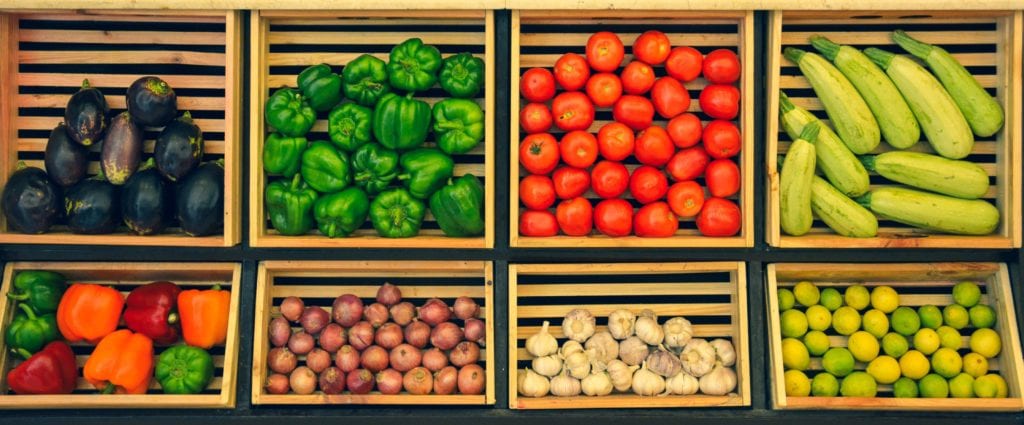
I’ve made an entire post about the 8 best vegetables for Intermittent Fasting , but I’ll just recommend the best one: Leafy Greens.
Leafy Greens can be Spinach, Kale, or Romaine Lettuce. The best thing about them is, you can include them into smoothies, in salads, or just on top of your main dish. At some point, you’ll start to appreciate them. Not only will they be easy to digest, but they also have a couple of other benefits, like a lower risk of heart disease, obesity, or mental decline. It is recommended to eat them as often as possible, which is easily doable, considering there are plenty of other leafy greens.
If Leafy Greens is not your thing, I wrote about 7 other nice vegetables you can break your fast with.
2. Dried Fruits
If you’re trying to lose weight, you want to keep your carbohydrates to a minimum. Some Dried Fruits, like bananas, grapes, or melon are pretty high in carbs. This is why you might want to avoid them, or simply not eat them every day.
But there are other dried fruits, that are pretty low on carbs. The below fruits are low on calories and carbs and pretty high on fibers.
| Name | Calories | Carbs | Of which sugar | Fibre |
|---|---|---|---|---|
| Peaches | 39 | 9.9g | 8.4g | 1.5g |
| Apples | 52 | 14g | 10.4g | 2.4g |
| Lychees | 66 | 16.5g | 15.2g | 1.3g |
| Apricot | 48 | 11.1g | 9.1g | 2g |
Note to the table: the macros are given for a 3.5 ounce (100g) serving.
3. Bone Broths
Bone broth is very recommended to be consumed during intermittent fasting. This is mainly because it contains a lot of minerals, vitamins, and is pretty filling.
I can recommend the following recipe:
4. Fermented Foods
You really want to try fermented foods in your feeding window. They come in forms like coconut yogurt, sauerkraut, Kimchi, or Kefir. They are especially good for gut health, and the good bacteria may help with your digestion process, which will help reduce discomfort when breaking your fast.
5. Soups

Soups can be high in protein and sometimes have easily digestible carbs (simple carbs), which can gently break your fast.
Vegetable soups are often recommended by nutritionists since this allows you to eat a couple of different veggies. You can be spontaneous and just add in your remaining veggies for example and experiment a little bit. And if you’d like you can top it off with leafy greens.
What you want to avoid are heavy soups, like the ones containing heavy cream. This is because it is hard to digest, which might cause discomfort after breaking your fast.
6. Healthy Fats

Healthy fats, or also called the “good” fats, are monounsaturated and polyunsaturated fats. This basically means they improve your heart, cholesterol and general health. These fats also have countless other benefits, according to this study.
You can find them in Olives, Avocados, Nuts (almonds, peanuts, …), sunflowers, fatty fish (salmon, tuna), and many more.
Unhealthy fats (“bad” fats) are considered to be trans fats as well as saturated fats. Trans fat is considered to be the worst fats of all. You can find them in things like
- Commercially-baked foods (cookies, doughnuts, muffins)
- Snack foods (crackers, chips), fried foods
- Generally in all fast food
While saturated fats aren’t a good choice either, it is still better than trans fats. You can find saturated fats in foods like:
- Meat (beef, lamb, or pork)
- Skin of chicken
- Dairy products containing whole-fat (milk, cheese, cream)
- Butter
- Different tropical oils (coconut, palm oil)
7. Fish
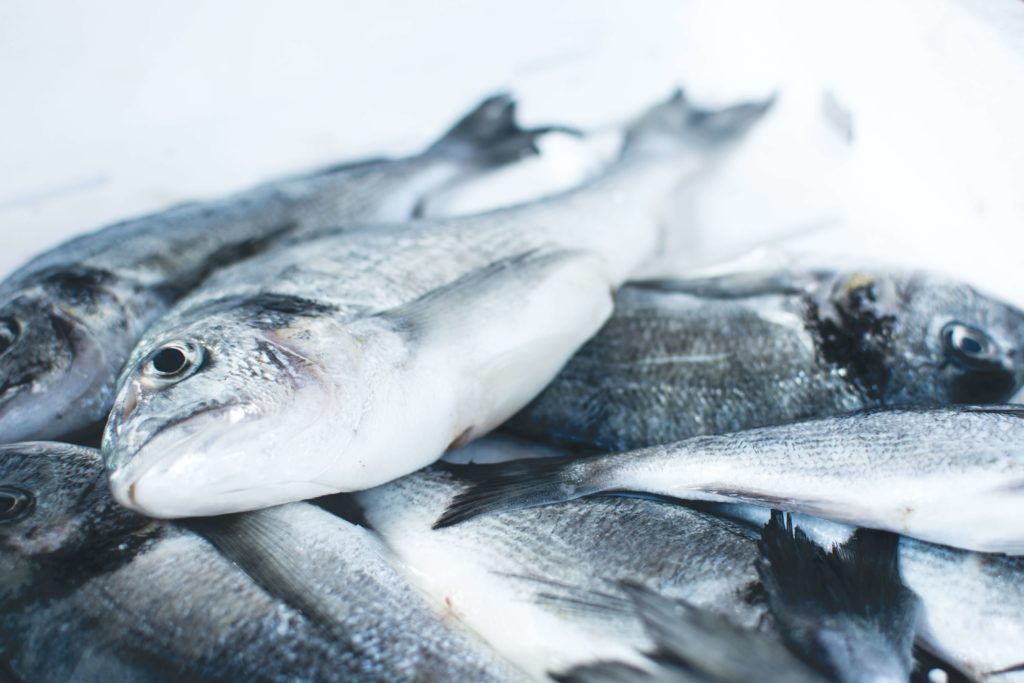
It is fine to break your fast with fish, but you might want to start off with small portions. Including a small portion of salmon will provide your body with essential amino acids, which will help rebuild and repair the body.
As always, be careful not to overeat. Your stomach is just not made to eat big portions all at once when breaking your fast, so you want to avoid binge eating. Always make sure to eat your meals slowly – that way you will know when you’re full.
You could try to add some vegetables (broccoli) and serve it with rice.
Fish has a lot of benefits, I’ve listed a few below.
- An important source of omega-3 fatty acids, which are essential nutrients that keep our heart and brain healthy
- High in protein
- Lowers blood pressure, thus reducing the risk of a sudden death (heart attack, strokes)
- Decreases risk of mental health issues (depression, Alzheimer’s)
8. Smoothies

Consuming smoothies while intermittent fasting is a great choice. I recommend this mainly because you can include a lot of different healthy ingredients, that are all easily digestible. That way you can have a really good drink to break your fast.
Benefits:
- Makes you feel fuller
- You will be increasing fruit and vegetable consumption
- Easy to digest
I still advise you to be careful: you might lose track of calories. A recent study has indicated that smoothies are often consumed as a snack instead of a meal (or at least part of).
You can include things like avocados, spinach, maybe half of a banana or a few blueberries. I also recommend that you just go to your fridge, take a look at what you have, and run a quick google search on it combined with the word smoothie. I’m sure you’ll find some good and easy recipes with very few ingredients.
9. Eggs
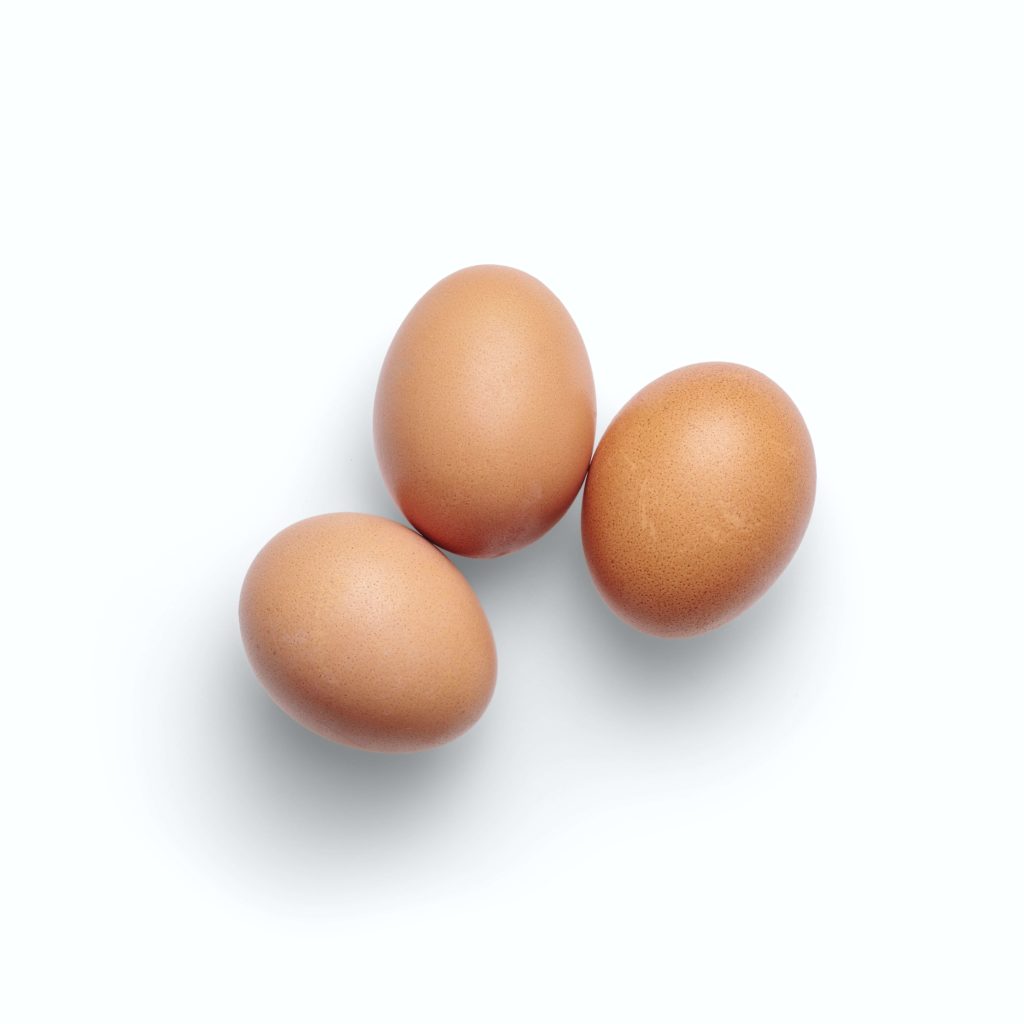
Eggs can be hard to digest for some people after a long fast, which is why I ranked it lower. I totally agree, that if you consume eggs in moderation (only one a day, only weekends) it is probably going to be no problem for most healthy people.
But still: yolks are high in cholesterol, which could increase risks of heart disease. But there are differences in findings, and according to this study the evidence is not clear enough to say with absolute certainty that there is a connection between eggs and heart disease risk.
Eggs in moderation (up to one a day) are okay for healthy people. Although yolks are high in cholesterol, eggs have proteins, vitamins, and other nutrients and don’t appear to increase the risk of developing heart disease.
10. Chia seeds (nuts)

While chia seeds are a little bit higher in fiber, it does contain a good amount of protein and healthy fats. Because of these two benefits, chia seeds can be used to break your fast. You can also sprinkle them over some veggies, or put them into the water and drink it. Since these seeds contain a high amount of magnesium, it will keep your cortisol level low, which will uplift your mood.
11. Apple cider vinegar (ACV)
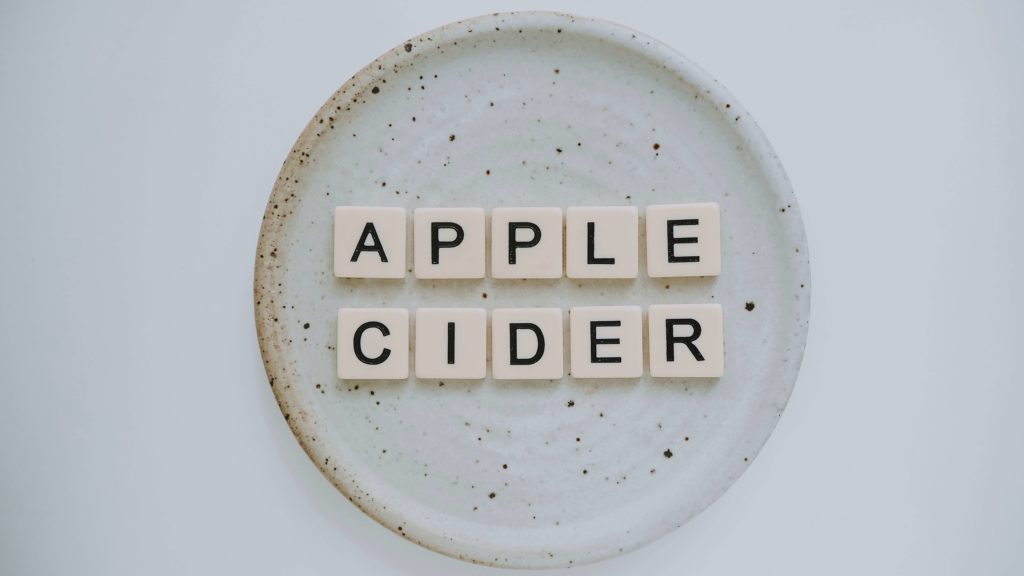
Even though Apple cider vinegar has very few calories, it will probably break your fast. But since it is mostly consumed in low dosages, it won’t have any big impact on your results. Still, you can consume it before fasting for some benefits:
- It will spike your digestive levels and therefore prepare for bigger meals
- The insoluble fiber will help you feel fuller with less food
12. Avocados
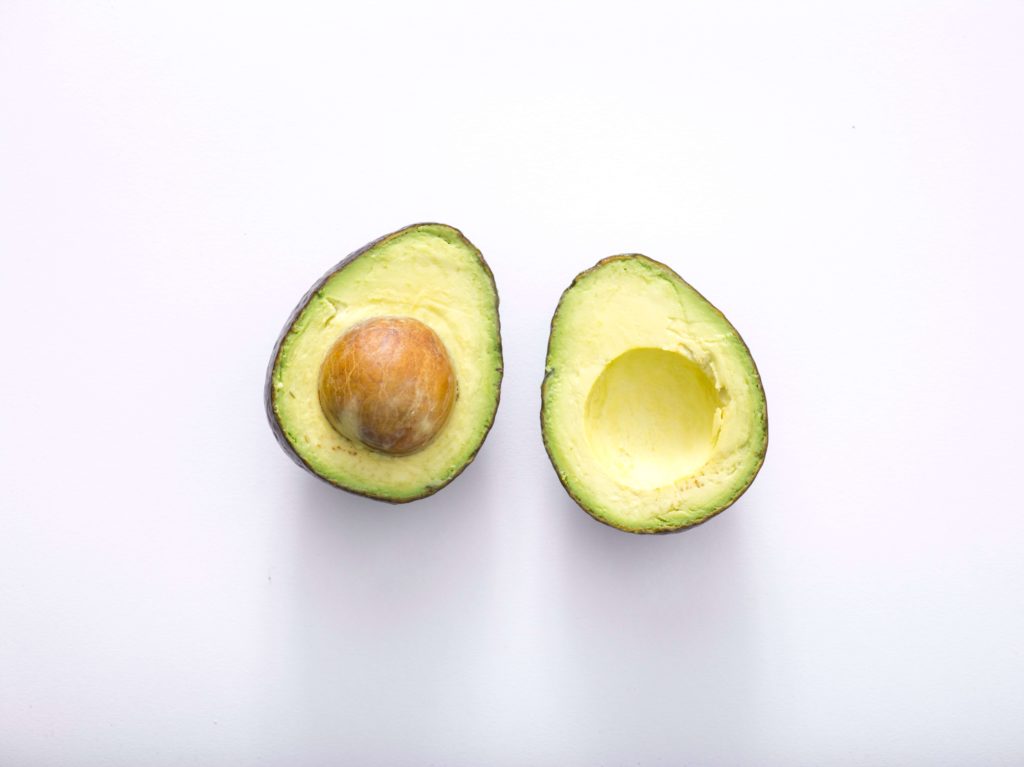
Although avocados contain a lot of fiber, there are many healthy fats that your body can easily digest. Another great benefit is that avocados often make you feel full and energized. Just make sure to stay on track and go easy on the avocados.
13. Anti-Inflammatory Drinks
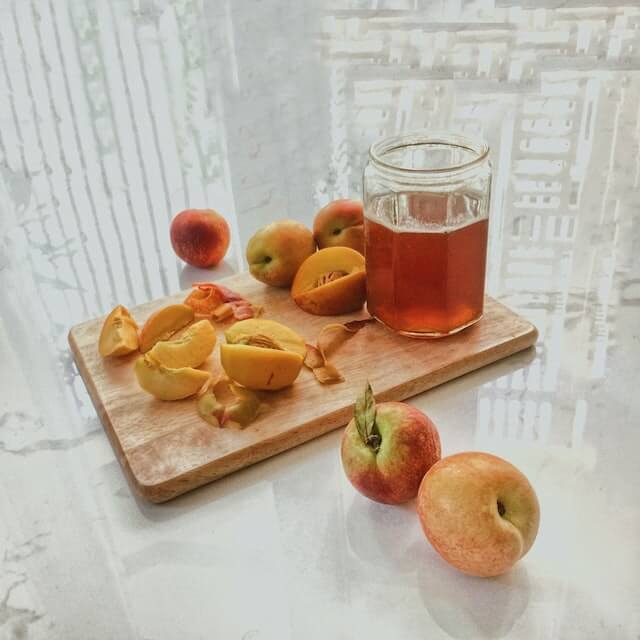
These drinks are great to manage muscle and stomach pain after your fast. They are easy to prepare, and the liquids digest much faster than any food can. Often times, the drinks are filled with highly recommended ingredients to help your digestive system.
You probably want to try a peach, tart cherry, or a lemon fruit drink.
Conclusion
“Too much of a good thing can be wonderful!” – Mae West
Sadly, this does not apply to intermittent fasting. Eating too much of a good thing will destroy your caloric deficit, and therefore make you gain weight instead of losing. But there are a lot of good things, that can be wonderful in moderation. Consuming vegetables (topped with chia seeds), dried fruits, bone broth, or fermented foods will definitely prepare your digestive system in a great way. Soups that are high in protein as well as fish is a great option in combination with lifting weights or working out. In case you’re a spontaneous person having almost expired ingredients laying around, you can try to make a smoothie every now and then. Healthy fats, eggs, apple cider vinegar and anti-inflammatory drinks can all be great choices to lower feelings of bloating or discomfort when breaking your fast.
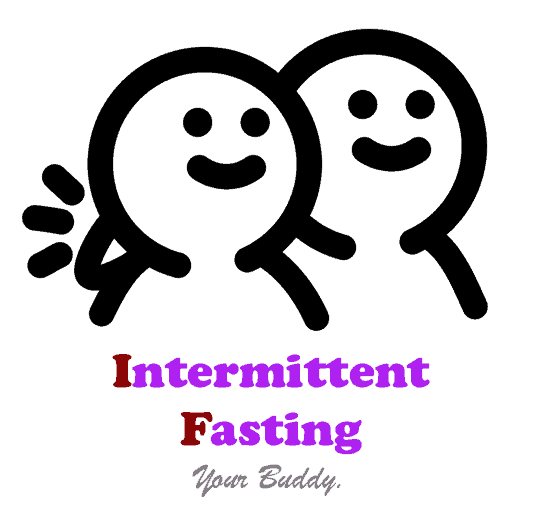
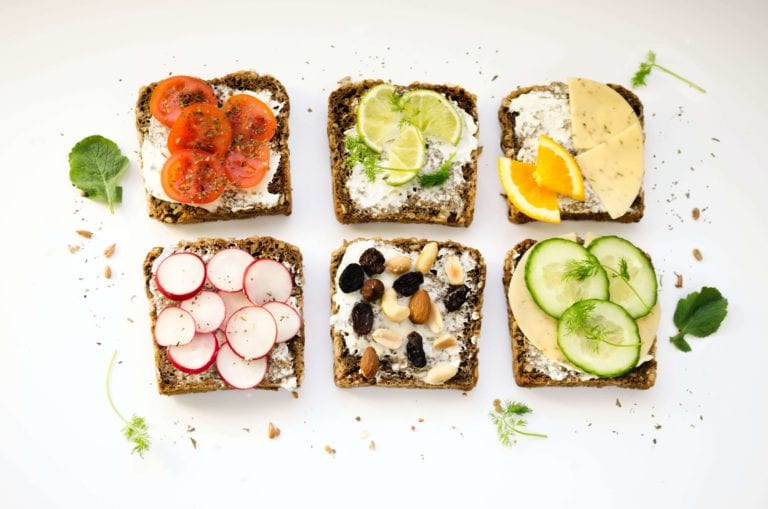
3 thoughts on “13 Best Foods to Eat after Fasting (science-backed)”